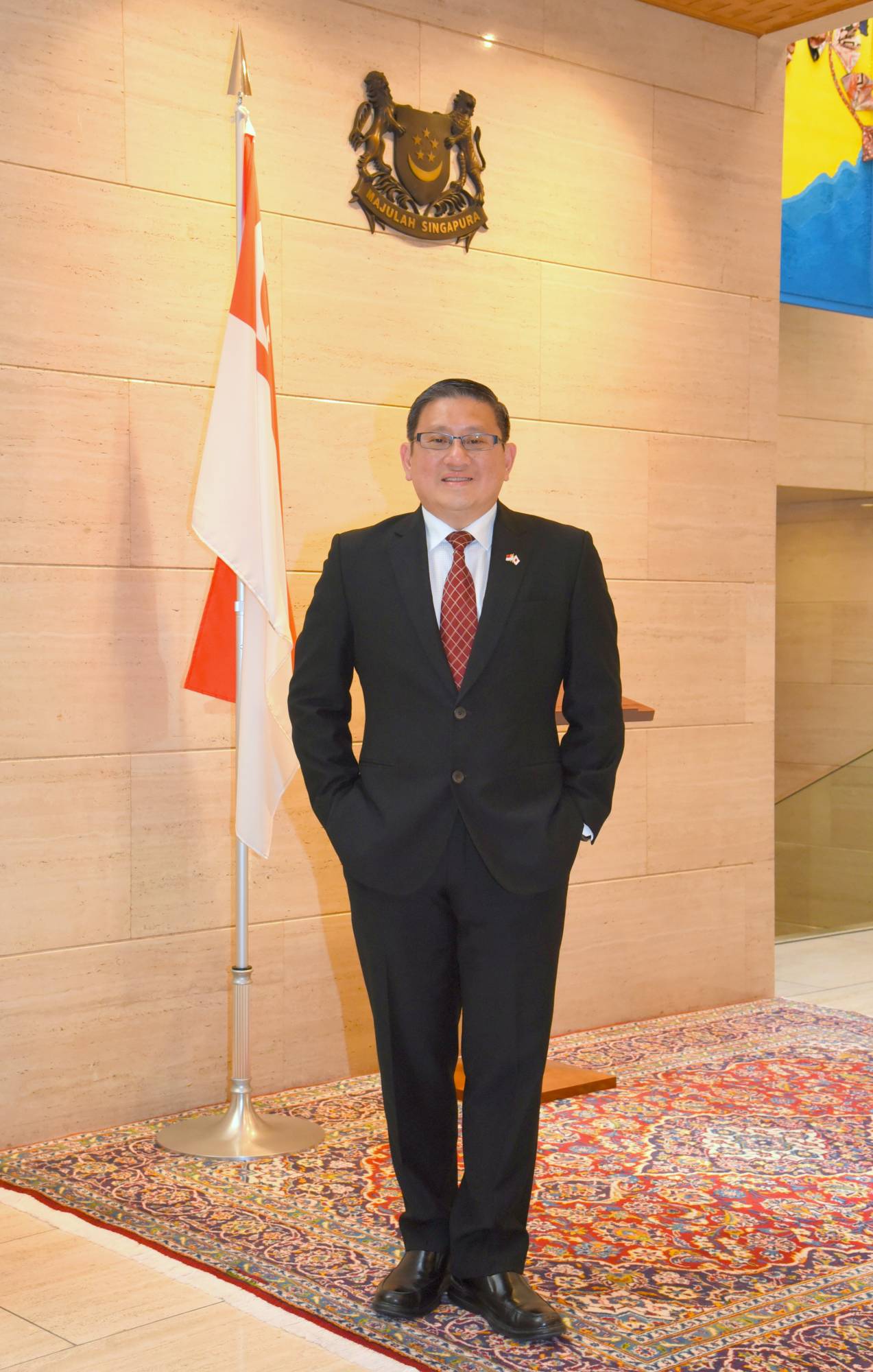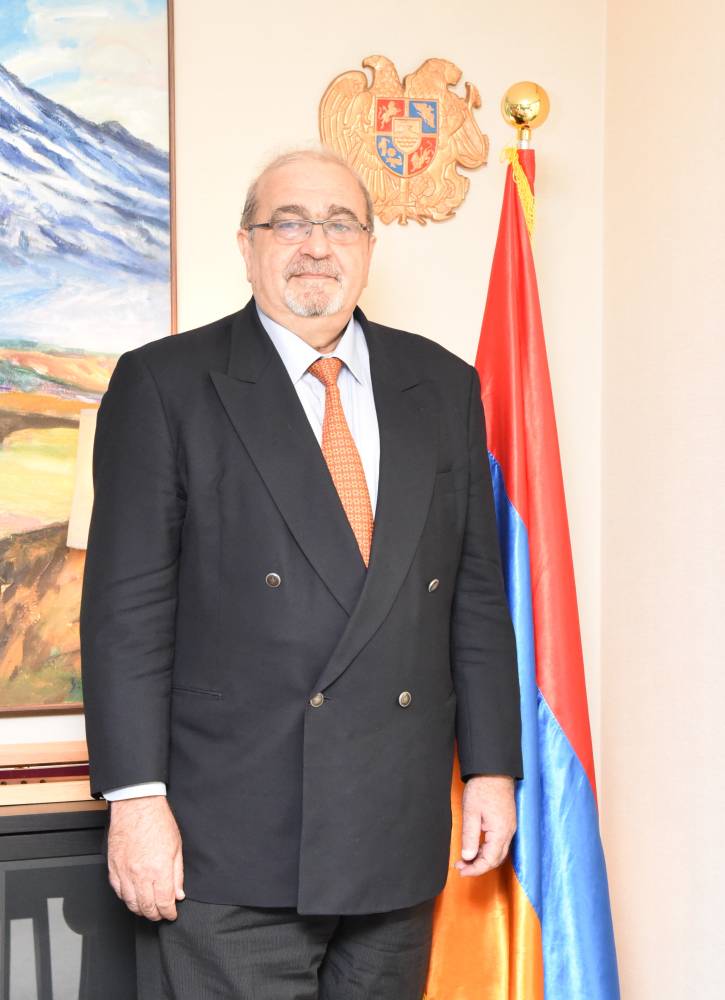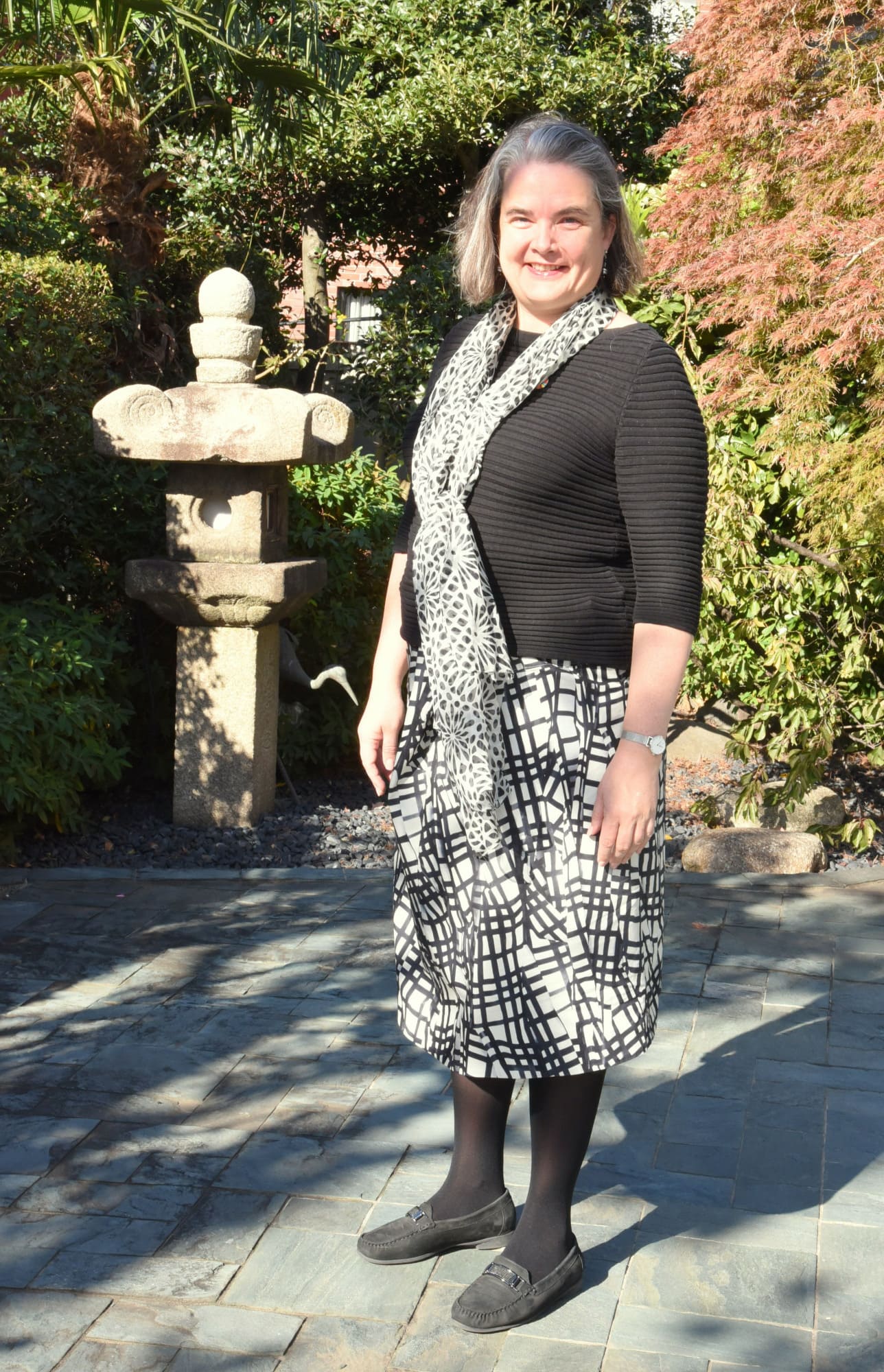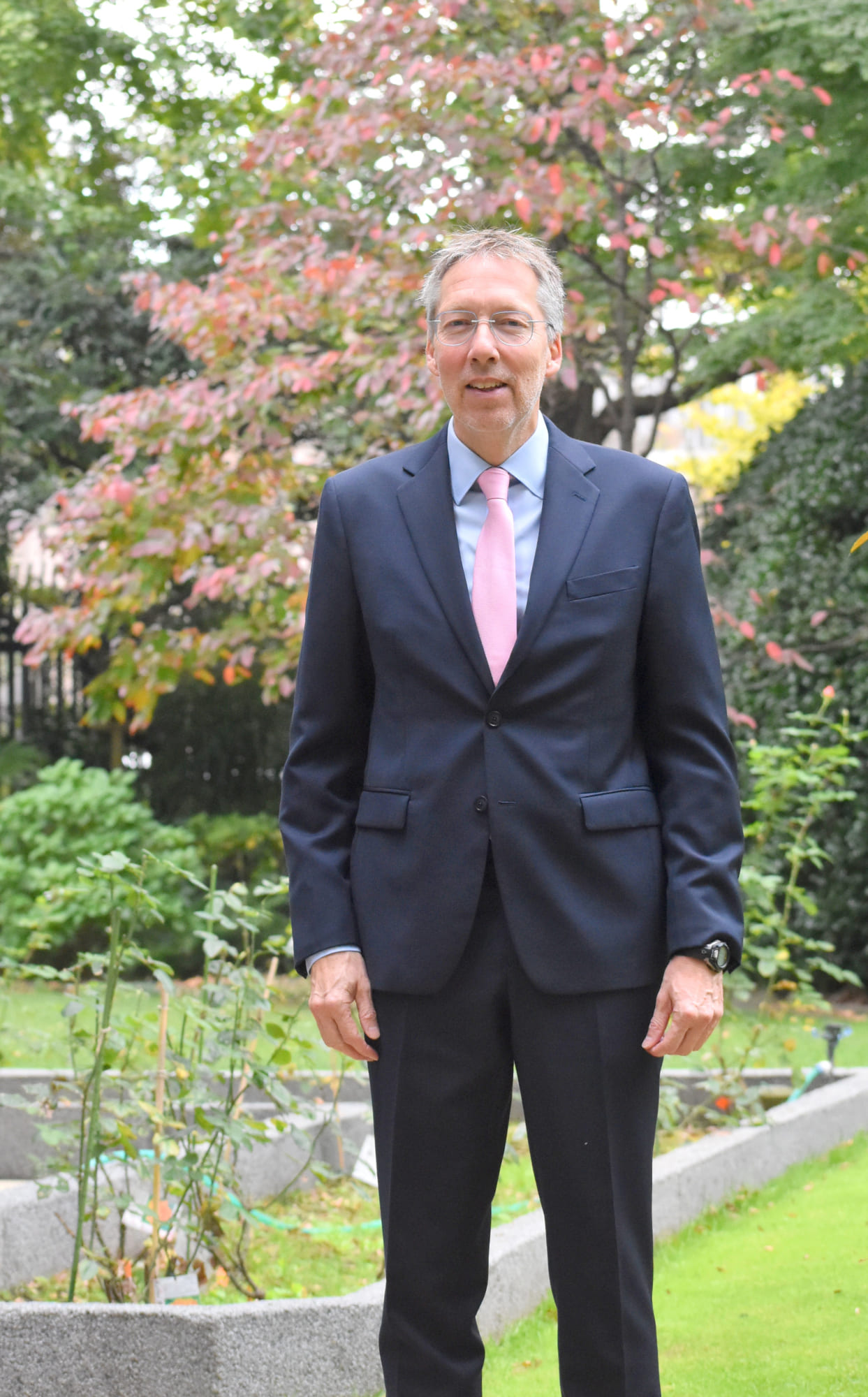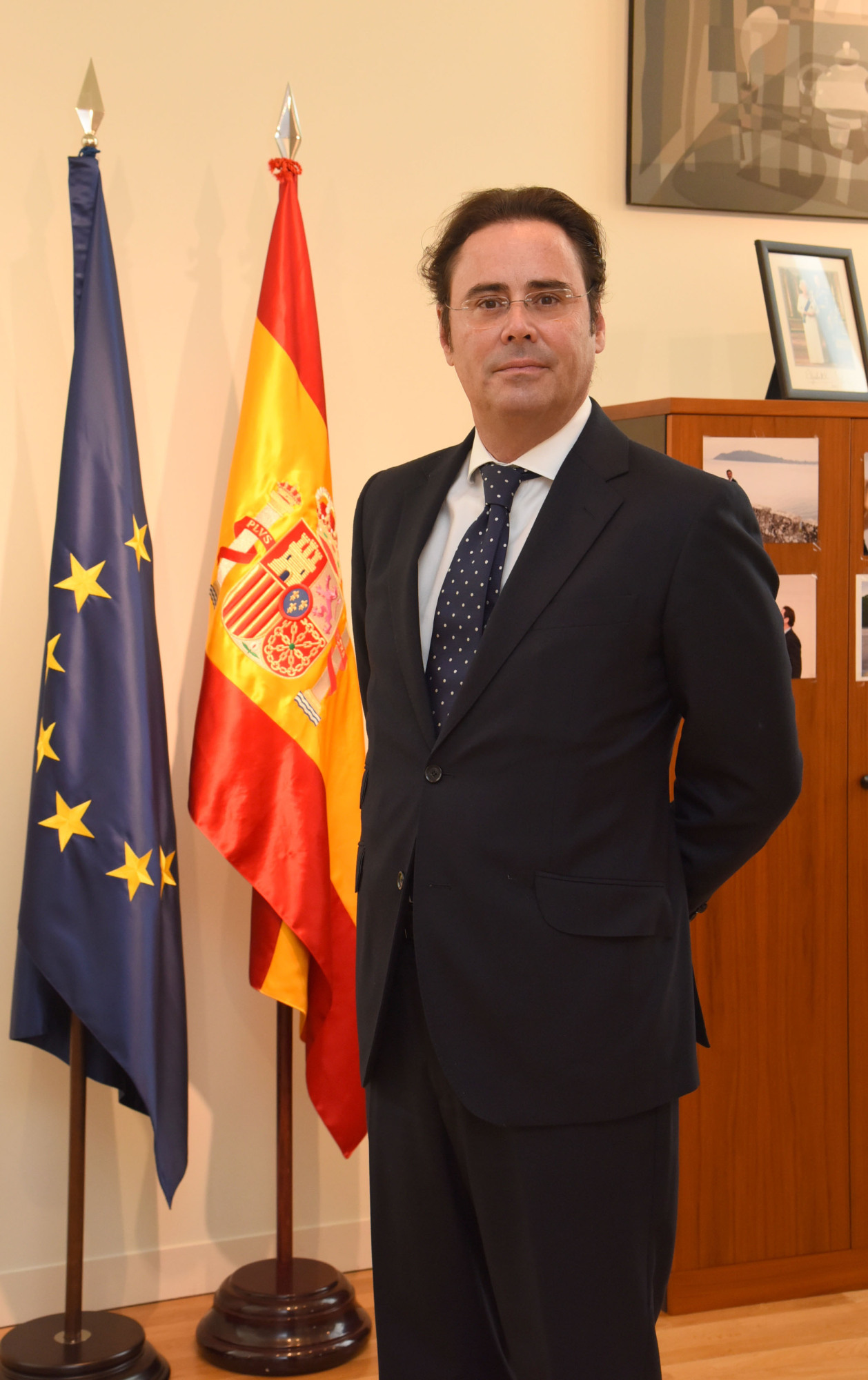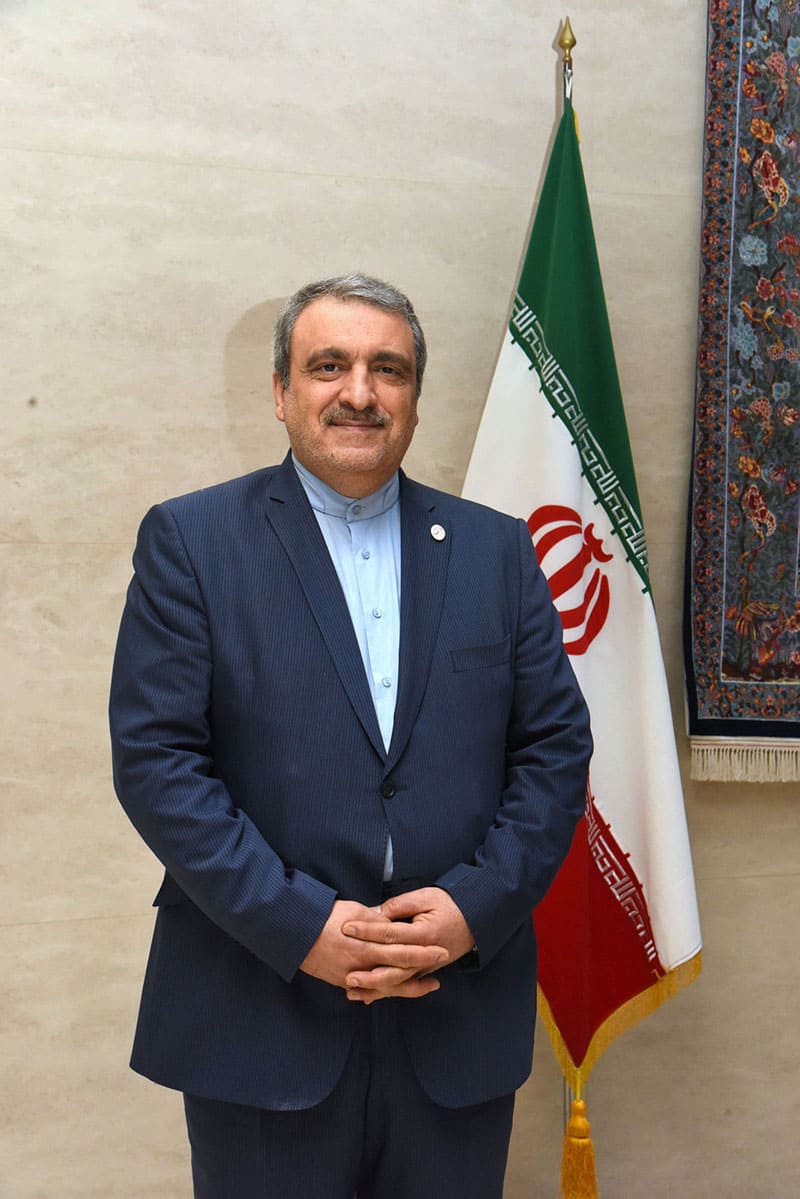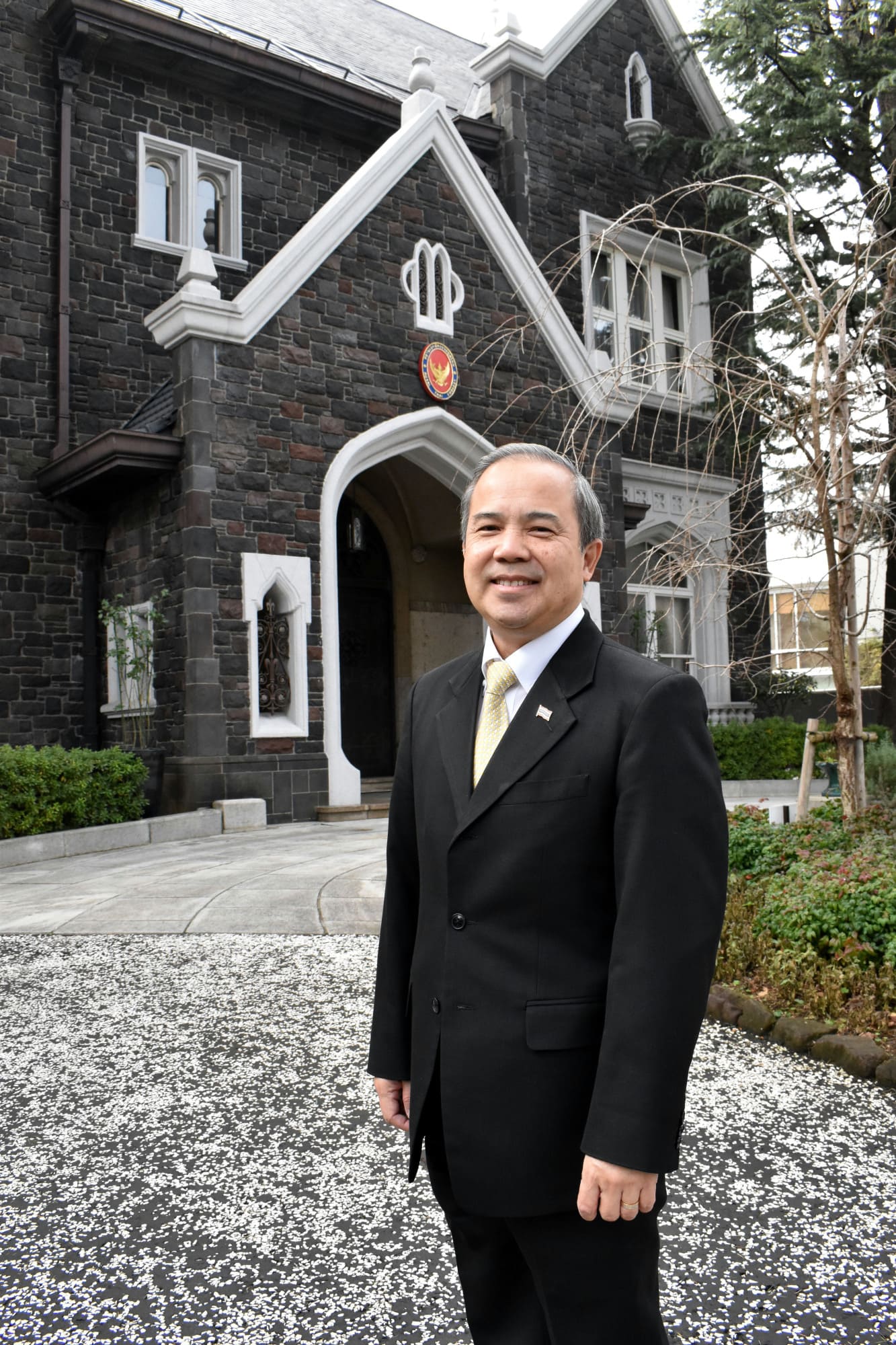
February 02, 2020
Final post informed by nearly 20 years in Japan
Ambassador Singtong Lapisatepun on the future of diplomatic relations
BY ARI SHARP
CONTRIBUTING WRITER
- Name: Singtong Lapisatepun
- Title: Ambassador of Thailand
- URL: http://site.thaiembassy.jp/en/
- DoB: Dec. 13, 1962
- Hometown: Chonburi, Thailand
- Years in Japan: 19
Singtong Lapisatepun was 16 when he first came to Japan. A student from the Thai countryside, he received a scholarship to study at a Tokyo high school where he immersed himself in Japanese life, making local friends while living communally.
“At that time, it was quite difficult,” he said. “I didn’t have my own bathroom, had to go to a sentō (public bath), and there were no big supermarkets, so we had to go to the butcher and the yaoyasan (greengrocer) and cook by ourselves.”
After graduating, Lapisatepun went on to study at Yokohama National University, earning a bachelor’s degree and later a master’s. In all, he spent more than 10 years studying in Japan as a government scholar before returning to Thailand to work for the Foreign Ministry.
Fast forward 30 years and he has returned to Japan for his third posting, this time as ambassador.
It is fitting that a man with such a deep connection to Japan should be Thailand’s top representative. Trade connections date back to the 15th century — Okinawa’s awamori liquor owes its origins to Thai rice — and in 1887, Japan was the first Asian nation with which Thailand (then known as Siam) established formal relations.
This trade relationship remains strong. Japan accounts for about one-third of foreign direct investment in Thailand. Japan is the third-largest market Thailand exported to and the second-largest market Thailand imported from in 2018, according to the World Bank. The two countries signed an economic partnership agreement in 2007 and Japan has said it is open to supporting Thailand to join the Comprehensive and Progressive Agreement for Trans-Pacific Partnership.
Lapisatepun argues that Japan has succeeded in investing in Thailand because of the synchronicity of government and the private sector. Japan has long been a major contributor of official development assistance (ODA), much of which has developed infrastructure, and now private companies are building on that progress.
“We utilized a lot of yen loans for many projects,” the ambassador said. “If you go to Bangkok’s Chao Phraya River, you will see many bridges, and more than 80 percent of those bridges were constructed under Japanese ODA.”
People-to-people links go to the very top. Emperor Emeritus Akihito enjoyed a warm relationship with his Thai counterpart Bhumibol Adulyadej, visiting him twice (first in 1991 and later in 2006) during his time on the Chrysanthemum Throne. Lapisatepun believes the cordial ties between Thailand’s royal family and Japan’s imperial family will continue in the new era under King Maha Vajiralongkorn and Emperor Naruhito.
The two countries also share a wartime history. When Japanese forces entered Thailand in 1941, the Thai government acquiesced, enabling Japan to use its territory to advance its military objectives. While Japan’s time in Thailand has cast a long shadow in Allied countries, its impact on Thailand itself is modest.
Were it not for that wartime connection, the ambassador’s official residence in Shinagawa might not exist. The grand Gothic-style home was built in 1934 by a Japanese businessman, but nine years later the metal used in its construction was at risk of being claimed to support Japan’s war effort. To put the building’s materials beyond the reach of mandatory acquisition, the site was sold to the Thai government.
Today, the two-story residence is home to a dazzling array of Thai and Japanese art, including myriad sculptures and ornate furnishings. It sits next door to the more modern Thai embassy, in which Lapisatepun leads about 40 staff.
Tourism is a major part of the Thai economy; last year, the Land of Smiles welcomed 40 million tourists, including 1.8 million from Japan. However, the country wants to be known for a whole lot more. Its agriculture sector already feeds much of Asia and it has a strong industrial base.
“We house many car manufacturers,” Lapisatepun said. “All major Japanese carmakers — Toyota, Honda, Nissan, Mitsubishi and Mazda — have their production base in Thailand. In Asia outside Japan we are one of the biggest car producers and we export our vehicles all over the world.” As part of a Thailand 4.0 initiative, the country is moving toward sophisticated manufacturing, including aerospace and next-generation vehicles.
After coming to power as a military figure in 2014, Prayut Chan-o-cha continued his prime ministership as a civilian leader and now claims a democratic mandate following last year’s elections. Aside from controversies surrounding the recent elections, Lapisatepun said political disagreements are now settled in Parliament rather than in the streets.
“In terms of the economy, if we can follow the road map of the policies the government has introduced, Thailand can be in a very good position and be stable,” he said.
Lapisatepun has built a career as an East Asian specialist, grappling with hot-button issues including the rise of China and tensions on the Korean Peninsula. With Thailand imposing a retirement age of 60, the 57-year-old says this will be his final posting.
However, well before his career kicked off, Lapisatepun met his wife Porndee in the 1980s as a university student while she was on an exchange program. The couple’s two sons received much of their education in Japan. Like their father, both young men, now ages 25 and 27, have strong Japanese language skills and an affinity for the country.
As time goes on and ties continue to grow, the pair might just appear in the next chapter of the multi-century epic that is the relationship between Japan and Thailand.
Career interspersed with roles in Tokyo
After completing his high school education in Tokyo, Singtong Lapisatepun studied at Yokohama National University where he received a bachelor of arts and then a master of arts, both specializing in international economics.
He returned to Thailand in 1989, joining the Ministry of Foreign Affairs. After brief stints in the ministry’s departments of economic affairs and political affairs, he joined the department of East Asian affairs where he rose through the ranks to become the director-general in 2016.
Lapisatepun was posted to Tokyo from 2002 to 2006 and from 2010 to 2015 before coming back as ambassador in 2019. He was also posted to Los Angeles as a consul in 1992 and to Seoul as ambassador in 2018.
Lapisatepun has received several Thai decorations, the most recent being the Knight Grand Cordon (Special Class) of the Most Noble Order of the Crown of Thailand.

